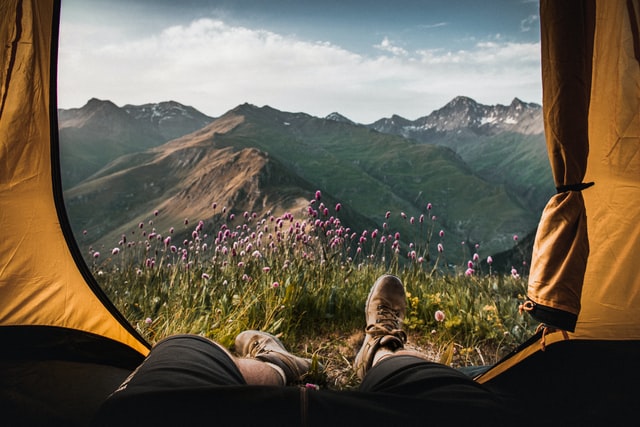Quite frankly, setting up a tent is not as easy as it seems at first glance. In addition to the information in the instructions attached to the product when you buy a camping tent, there are many other essential subtleties.
If you are going on a hike for the first time and there are more experienced tourists with you, then you, as a beginner, will be very unpleasant to endure their ridicule and tricks. In addition, you must understand that the knowledge of how to set up a tent in any weather conditions is not just a competition and a reason to show how cool you are, but first of all a way to protect yourself and your fellow travelers.
You may not know, but if the tent is improperly installed, you risk getting wet during the rain, waking up in a puddle of water that has flowed in through the cracks, or you may feel sick from stuffiness and stuffiness inside. Mosquitoes may bite you very much, or other nasty insects. So let’s share with you some guidelines on how to set up a tent step by step:
1) Where to set up a tent?
Finding the right place for your temporary home is the first and most essential step in struggling for a good weekend. A perfectly flat surface does not exist in nature. It is unnatural. However, you will have to walk around and scrutinize the surfaces to avoid accidentally choosing hilly and lowland terrain for parking. This is not scary if you did not find such a cleared plot of land near the alleged camp.
You can level the surface yourself by removing rocks, filling holes, or digging up hills.
Do not neglect this point in any way. Otherwise, your indiscretion can lead to back problems, with which you will then have to go to a traumatologist or even a surgeon.
Take pity on your spine and muscles because they will come in handy in the future.
To make the sleeping area softer, we advise you to place some branches under the tent.
Never set up your tent next to an anthill or hornet’s nest. Otherwise, traveling with your family can be a very unpleasant and traumatic experience.
If you do not have the opportunity to find a perfectly flat surface because you are, for example, in the mountains, wherein there is a certain angle of inclination, then remember that this is not critical. Of course, provided that you lie down so that your head is level above your feet. Otherwise, you are guaranteed a severe headache due to a sharp blood flow to the skull during sleep, as well as numbness of the limbs.
2) Consider the variability of the weather
To not ask questions later about how to set up a tent in the rain, set up a tent in the snow, or reinstall it if it suddenly capsized, you need to consider the likelihood of adverse weather conditions in advance.
That is why never set up camp near slopes and mountains because, in case of snowfall or heavy rainfall, all precipitation will fall on you in double or triple volume.
To prevent this from happening, you need to dig a ditch around your tent somewhere 8-11 inches from the wall of the cover because this is the only way you can count on the fact that when it rains, the water will flow down, not accumulate near you.
3) How to set up a tent on gravel?
If you have to spend the night in the mountains, it is best to stock up on soft mats and polyethylene covering, which will need to be laid down under the tent not to tear it and feel more comfortable.
Also, you should clean up all the large cobblestones under the parking lot and level the small ones to get a more or less vivid site, as far as possible in the mountains.
4) Don’t play with fire
Another important rule is not to make a fire near the tent, since at night you may not follow the fire and die in the fire, or you may be poisoned by combustion products and suffocate if the wind blows in your direction.
5) What are the requirements for camping tents?
Softness, water resistance, a reasonable frame, and preferably an uncomplicated assembly method are the main requirements for a tent. Moreover, we advise you to take a tent of a larger size than you originally planned, as anything can happen, and the extra space will make you feel more at ease.
Do not spare money for a good tent, as it is the key to your success in the hike, health, and pleasant impressions.
We wish you the best of luck with your tourism!

